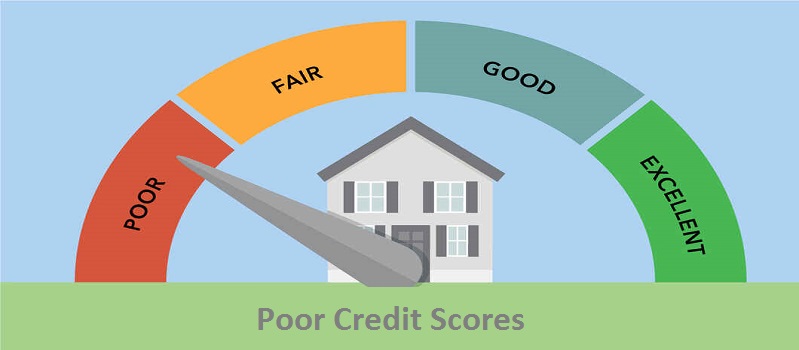As the living cost is rising and it is becoming difficult for people to get by, it is quite easier to say that the economic conditions will not be favourable in the coming days. Savings are under threat amid the living cost crisis, and there are meagre chances for boosting income sources.
It is not clear how long the economic recession will last, but there are some ways that you can use to get by. Although now is the time to buck up, many of you have your head in the sand. You do not want to address the problem and figure out the solution as doorstep loans like Provident are out there.
These loans can help fund your emergency expenses, but you will have to pay back the debt with interest. It may seem very affordable, but the fact is you cannot.
Tips for setting aside money to fight recession
You cannot have control over the recession, but you can prevent your finances from the rising cost of living
1. Build an emergency cushion
Creating a rainy-day fund is the first step to mitigating the impact of the recession. Setting aside money seems to be a herculean task, especially when you are not earning a lot of money. You must be able to meet your daily expenses for up to three months from your savings.
However, laying by that much money is not a cinch. In order to create an emergency cushion, you should know your spending. To calculate the average spending for each month, you need to look over your bank statement for the past three to six months.
Once you have determined how much you need every month to get by, you can deduct that amount from your total income to know the difference that will be your savings. Try to pay yourself first, so your saving contribution does not decrease due to your monthly expenses.
Make a 50/30/20 budgeting rule. However, this is possible only when you earn enough that you can easily meet your expenses from 80% of your income.
2. Pay off your debts
It is vital to clear all your outstanding dues if you want not to run out of money when emergencies crop up. Most of the people fail to manage their expenses as they keep recklessly spending money and so not save sufficient cash.
When emergencies pop up, they take out loans in Belfast and eventually find that they cannot repay them. As a result, they keep taking on debt and, in the end, fall into a debt trap. Have a clear repayment strategy, whether you have a single debt to pay off or multiple.
You can pause stashing away money until you have settled all of your debts. Try consolidating your debts if you have multiple obligations. This will help you have one large loan to be repaid over a period of time.
However, getting a consolidation loan requires at least a fair credit score. Consult a financial advisor if you are still disconcerted about your repaying strategy. By revealing your financial condition to them, you can have them frame the right strategy.
3. Live a frugal lifestyle
It is likely that you need to whittle down your current expenses to get by smoothly, and this is possible via downsizing your lifestyle. If you have too much debt to pay off, you will certainly need to take some rigorous actions.
Of course, they will be about downsizing. Live a lean budget that leaves no scope for discretionary expenses. If your rent is pinching your pocket, you should try to move out to a different location where you can save some money.
If you live in a big house and can adjust to a smaller one, you should try to downsize your home. You will likely save a lot of money on your mortgage that you can utilise for the debt payment. Apart from these areas, another way to live a frugal lifestyle is to save money on your necessities.
For instance, instead of using your own vehicle, you should use a mode of public transport. Try to go on foot to cover shorter distances. This will not just save your money on fares but also save money on medical bills. Save money on groceries by buying them from thrift stores. Try to buy in bulk but do not stock up on perishable goods. You can use thrift stores to buy shoes and clothes.
4. Increase your income sources
It is vital to have multiple income streams to fight off the recession. Have a full-time job but apart from that, you should consider doing some freelance work. You can earn additional money from freelance projects. You can take on as many projects as possible, depending on your time management skills. You can try it even if you do not have a background from that profile.
Utilise your skills to make money. If you cannot manage freelancing along with your full-time job, you can think of a less tiring side gig, for instance, walking a dog and lawn making. The money you receive from your side gigs should be transferred to an emergency pot and used in your monthly payments to meet your daily expenses.
However, it does not point out that you will use up the whole of your salary. If you can save some money from it, you should. If you are self-employed, you should figure out how you can have more cash coming in. Reducing your expenses is one thing, but you should try to invest money. Creating an investment portfolio can make money from money.
The bottom line
It can be challenging to fight off recession, but a rule of thumb says that you can do it by being strategic. Try to set aside money to meet emergency expenses, create a budget and pay off all of your debt obligations, increase your income sources, and live a frugal lifestyle.
By spending money smartly, you can successfully manage to live your life to the fullest during the recession. Consult a financial expert to help make money management more judicious.

Emma Anderson is a financial advisor at Quickloanslender who always believes in researching hard to know her clients’ financial problems. She takes the time to understand their financial wants and needs to write the blogs on them as the solutions. In her long 14 years of experience, she has written plenty of blogs on the financial and business sectors of the UK.
Emma Anderson has been recognised for her work in financial planning and her blogs are regularly published in the website of Quickloanslender. As far as her educational qualification is concerned, she has done Masters in Accounting and Finance, and done PG Diploma in Creative Writing.






